Note the music
We can program a computer to play music. Conventionally this is done by hard coding, which is the process of coding all possible expected behaviours. Alternatively, we can train an artificial intelligence (AI) computer about what notes go well with others, so it can play a duet with a human musician. Students can make their own instrument that plays a particular note for a set beat, for example when a piano key is pressed or a guitar string is strummed or a drum skin is hit.
Additional details
| Year band(s) | 3-4, 5-6 |
|---|---|
| Content type | Lesson ideas |
| Format | Web page |
| Core and overarching concepts | Abstraction, Specification (decomposing problems), Algorithms, Implementation (programming), Impact and interactions |
| Australian Curriculum Digital Technologies code(s) |
AC9TDI4K03
Recognise different types of data and explore how the same data can be represented differently depending on the purpose
AC9TDI6K03
Explain how digital systems represent all data using numbers
AC9TDI4K01
Explore and describe a range of digital systems and their peripherals for a variety of purposes
AC9TDI4K02
Explore transmitting different types of data between digital systems
AC9TDI6K01
Investigate the main internal components of common digital systems and their function
AC9TDI6K02
Examine how digital systems form networks to transmit data
AC9TDI4P01
Define problems with given design criteria and by co-creating user stories
AC9TDI4P02
Follow and describe algorithms involving sequencing, comparison operators (branching) and iteration
AC9TDI6P03
Design a user interface for a digital system
AC9TDI6P02
Design algorithms involving multiple alternatives (branching) and iteration
AC9TDI6P05
Implement algorithms as visual programs involving control structures, variables and input
AC9TDI4P05
Discuss how existing and student solutions satisfy the design criteria and user stories
AC9TDI6P06
Evaluate existing and student solutions against the design criteria and user stories and their broader community impact |
| Technologies & Programming Languages | Artificial Intelligence |
| Keywords | Artificial Intelligence, AI, artificial, intelligence, teachable machine, data representation, algorithms, problem solving, digital systems, music, unplugged activity, Inclusive education, disability, disabilities |
| Integrated, cross-curriculum, special needs | The Arts, Inclusive education |
| Organisation | ESA |
| Copyright | Creative Commons Attribution 4.0, unless otherwise indicated. |
Related resources
-
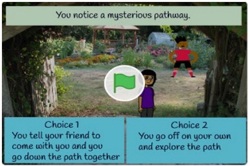
Classroom ideas: Choose your own adventure (Years 3-6)
In Digital Technologies, students from Year 3 onwards should be planning and implementing projects that include branching (decision-making). Creating a ‘choose your own adventure’ story is an excellent way for students to design and implement a project that makes use of branching.
-
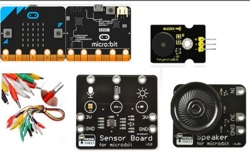
Classroom ideas: Micro:bit Environmental Measurement (visual and general-purpose programming) (Years 5-8)
Investigating environmental data with Micro:bits: This tutorial shows the coding needed for digital solutions of some environmental issues that can be created using pseudocode and visual programming.
-

DIY micro:bit metal detector (Years 5-6)
This activity shows one way to incorporate Digital Technologies into a goldfields unit in an authentic way using a micro:bit.
-
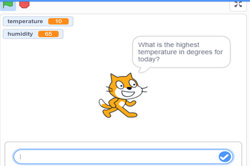
Visual programming with Scratch (Years 3-6)
This resource comprises a collection of sample activities that incorporate visual programming (Scratch) into teaching and learning programs.
-
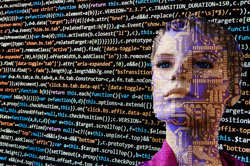
Robots, data and computational thinking (Years 2-4)
This classroom resource comprises four worksheets to accompany a lesson on data and computational thinking. These materials are designed for teachers to use simple line-following robots (Ozobots) to engage students in the computational thinking process and working with data.
-
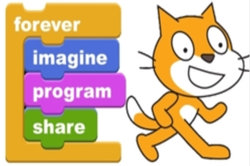
Computing at School: Resources
Browse the curriculum resources which are tried and classroom tested resources submitted by primary teachers to support Computing for early to middle primary school. Requires free registration.
-
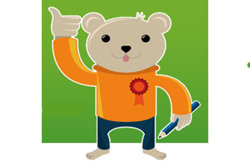
CAS Barefoot
A broad collection of online resources to support teachers to develop and implement computational thinking, concepts and computer programming. Free log in required to access materials.
-
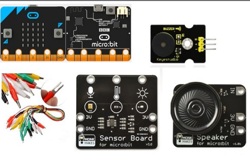
Classroom ideas: Micro:bit Environmental Measurement (visual programming) (Years 5-6)
This tutorial shows the coding needed for digital solutions of some environmental issues that can be created using pseudocode and visual programming.
